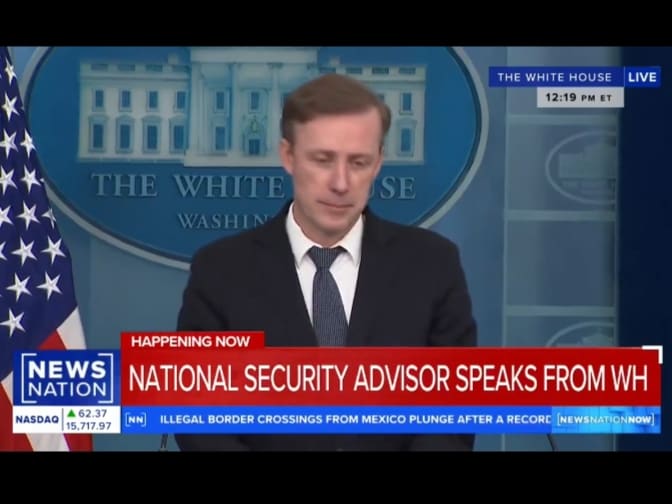Learn about Russia’s development of a space-based nuclear weapon and its impact on global security.

The escalating tensions between Russia and the United States have once again come into focus with reports emerging about Russia’s development of a space-based nuclear weapon designed to target U.S. satellites. This revelation has sparked significant concern among U.S. officials and prompted action from the House Intelligence Committee, under the leadership of Rep. Mike Turner.
The House Intelligence Committee’s chairman, Rep. Turner, issued a stark warning regarding a “serious national security threat” emanating from Russia’s pursuit of this advanced weapon. While Turner did not provide specific details in his statement, it is understood that he was referring to Russia’s efforts to deploy a nuclear weapon in space capable of disabling crucial U.S. satellites. These satellites play a vital role in various aspects of American infrastructure, including civilian communications, navigation, military operations, and intelligence gathering.
Also Read:- Kansas City Chiefs Parade Shooting Tragedy
The seriousness of the situation prompted President Joe Biden to direct White House national security adviser Jake Sullivan to engage with congressional leaders on the matter. However, the White House emphasized the need to handle the threat cautiously to avoid causing mass panic while ensuring appropriate measures are taken to contain it.
In response to these developments, the Kremlin dismissed the U.S. warnings as a “trick” and “malicious fabrication.” Russian spokesperson Dmitry Peskov accused the White House of attempting to manipulate Congress into allocating funds, referring specifically to aid for Ukraine. This dismissive response underscores the growing tensions between Russia and the United States on matters of national security.
Also Read:- Tom Suozzi Triumphs: Democrat Secures Victory as Successor to George Santos
The revelation of Russia’s pursuit of a space-based nuclear weapon comes amid ongoing concerns about the militarization of space and the potential for conflict in this domain. Both Russia and China have been investing heavily in developing anti-satellite weapons, raising fears of a new frontier in warfare.
The situation has also reignited discussions about the need for international agreements and norms governing activities in space. With the prospect of space becoming a battleground for global powers, there is a pressing need for diplomatic efforts to prevent the escalation of tensions and ensure the peaceful use of outer space for the benefit of all nations.
Furthermore, the timing of these developments adds another layer of complexity to the geopolitical landscape. Against the backdrop of the ongoing conflict in Ukraine and the broader geopolitical competition between the United States and Russia, the emergence of a new space-based threat further complicates efforts to maintain stability and security in the international arena.
In Congress, lawmakers are grappling with how best to respond to the growing threats posed by Russia’s actions. Calls for increased funding for national defense and efforts to bolster alliances with key partners in Europe and beyond have gained momentum in light of these developments.
Also Read:- Judge Advances Hearing on Motion to Disqualify Fani Willis in Trump’s Georgia Election Case
However, there are also concerns about the potential for overreaction and the risk of exacerbating tensions through provocative actions or rhetoric. Finding the right balance between deterrence and diplomacy will be essential in navigating this challenging geopolitical environment.
Meanwhile, the public remains largely unaware of the extent of the threat posed by Russia’s space-based nuclear weapon. While efforts are underway to inform congressional leaders and key stakeholders, there is a need for greater transparency and public awareness to ensure that appropriate measures are taken to address this growing security challenge.
In conclusion, Russia’s pursuit of a space-based nuclear weapon represents a significant escalation in the ongoing tensions between Russia and the United States. The development underscores the need for robust diplomatic efforts to prevent the militarization of space and ensure the peaceful use of outer space for the benefit of all nations. It also highlights the importance of maintaining a delicate balance between deterrence and diplomacy in addressing the complex challenges of the modern geopolitical landscape.
